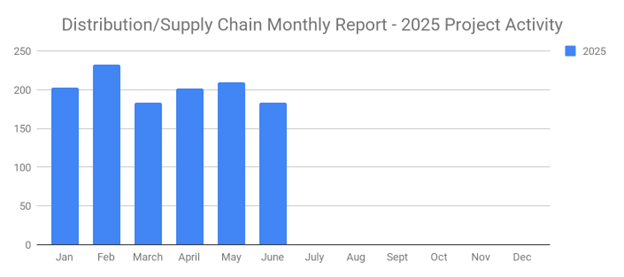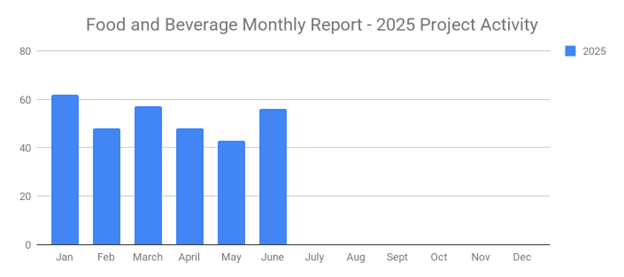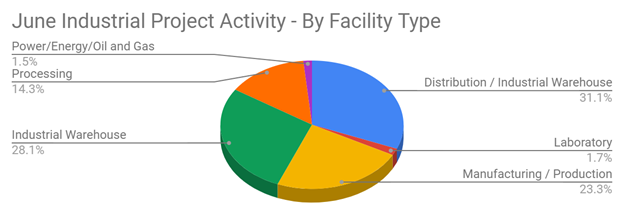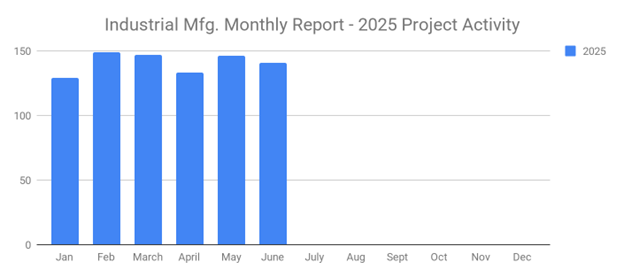
There's no guarantee that you'll reach a prospective buyer just because you call his or her number. B2B buyers are decision-makers, so they often have one or more low-level employees who answer the phone on their behalf. These gatekeepers are responsible for screening calls. To reach a prospective buyer, you'll have to get the past the gatekeeper. Unfortunately, many B2B sales reps make the following mistakes when talking to gatekeepers, resulting in a lower chances of success.
In the world of B2B sales, cold calling isn't just a numbers game—it's a psychological showdown. And the first boss you have to beat? The gatekeeper.
Gatekeepers are more than just receptionists. They’re trained, tuned-in, and laser-focused on one thing: blocking distractions from their execs. That means your cold call has to be fast, sharp, respectful—and damn near surgical.
Let’s break down the most common mistakes that stop B2B sales reps cold—and how to flip the script and get patched through like a pro.
🚫 1. Performing a Sales Pitch (To the Wrong Person)
Gatekeepers don’t make buying decisions, so stop treating them like they do. Leading with a pitch wastes time and sets off alarms. They’ll shut you down and mark your number for screening.
Don't perform a sales pitch when talking to gatekeepers. Sales pitches aren't meant for prospective buyers. Gatekeepers don't have the authority to buy products or services, and they typically aren't interested in listening to sales pitches. Performing a sales pitch will only discourage gatekeepers from patching your call through to the prospective buyer.
✅ Instead: Be brief. Be human. State your intent—don’t sell. Let them know you’re calling about a project or opportunity relevant to their boss, and that you’ll keep it short.
👤 2. Failing to Use the Prospect’s Name
“Can I speak to the VP of Operations?” = auto-reject.
“Hi, is Sandra available?” = door cracked open.
Another common mistake sales reps when talking to gatekeepers is failing to address prospective buyers by name. Rather than saying that you are trying to reach the "CEO" or "COO," for example, mention the prospective buyer's name. Doing so lets the gatekeeper know that you aren't just a spam caller; you've done your homework and are prepared to talk to the prospective buyer.
✅ Instead: Always know the name. Doing your homework signals professionalism and earns instant credibility. Bonus points if you pronounce it correctly.
🙈 3. Concealing the Reason for Your Call
Being evasive is the fastest way to get flagged. Gatekeepers are trained to sniff out vague nonsense like “It’s a personal business matter.”
Concealing the nature of your calls is a surefire way to fail. It's the gatekeeper's job to screen calls on behalf of prospective buyers. If you aren't transparent, they won't patch your call through. You need to tell gatekeepers why, exactly, you are trying to call a prospective buyer. While you shouldn't perform a sales pitch, you can tell gatekeepers that you want to talk to a prospective buyer about an offer he or she may be interested in.
✅ Instead: Be transparent—but tactful. “I’m calling about a capital project they’re overseeing for next quarter and wanted to share some relevant insights.”
⏱️ 4. Talking Too Long
Gatekeepers don’t have all day. They’re fielding calls, managing calendars, and juggling a million tasks.
You should be conscious of how long you typically talk to gatekeepers. Gatekeepers are responsible for answering phones. They often handle dozens of calls per day, so they don't have a lot of time to spend on the phone. To keep gatekeepers engaged, you should limit the length of your calls to no more than one minute. That's typically enough time to explain why they should patch your call through to the prospective buyer.
✅ Instead: Hit your talking points fast. Your intro should be under 30 seconds. Practice a crisp opener that frames your purpose without rambling.
📛 5. Not Saying Who You Are
If you don’t say your name, job title, or company, why should they trust you?
Always mention your name and job title when talking to gatekeepers. Failure to explain who are you will lower your chances of success. Gatekeepers want to know what you are real person with a legitimate reason for calling. By mentioning both your name and your job title, you'll have a better chance of reaching prospective buyers rather than getting stuck at the gatekeepers.
✅ Instead: “This is Alex Johnson, I’m with BlueArc Solutions—we help facilities teams streamline material handling operations during new construction phases.”
Short, clean, legit.
📆 6. Skipping the Follow-Up Call Ask
Didn’t get through? Don’t hang up empty-handed.
If a gatekeeper doesn't patch you through to the prospective buyer whom you are calling, try to schedule a follow-up call. In other words, ask the gatekeeper when you should call back. The gatekeeper may recommend calling back later that day when the prospective buyer is typically available. The only way you'll know, however, is by asking.
✅ Instead: Ask when the best time to call back is. Gatekeepers often know the decision-maker’s schedule better than anyone—and they’ll tell you if you ask politely.
💬 7. Not Being Polite (Seriously)
Gatekeepers aren’t the enemy. In fact, they can be your ally—if you treat them with respect.Being polite will go a long ways in helping you get past gatekeepers. While most sales reps aren't rude when talking to gatekeepers, they don't always treat gatekeepers with respect. Some sales reps recognize gatekeepers as an obstruction to their sales efforts. If you aren't polite when talking to gatekeepers, though, you'll have a hard time reaching prospective buyers. You must treat them with respect. Otherwise, you'll inevitably get stuck the gatekeepers when cold calling prospective buyers.
✅ Instead: Always use “please,” “thank you,” and tone that drips with professionalism. This isn’t fake. It’s essential.
🧨 8. Getting Pushy
Forcefulness doesn’t impress—it irritates. If a gatekeeper says they can’t connect you right now, respect it.
Some sales reps make the mistake of being pushy when talking to gatekeepers. If a gatekeeper doesn't want to patch through to a prospective buyer, you shouldn't accept his or her decision. You can always try calling back. If you are pushy, on the other hand, even these follow-up calls will end in failure. Gatekeepers respond poorly to pushy sales reps. They may take a note of your name and reject all your future calls.
✅ Instead: Back off, but don’t give up. “No worries, I’ll try again tomorrow.” Politeness today = chance tomorrow.
🤝 9. Not Using Referrals
If someone in the company referred you—or even if you’ve worked with similar companies nearby—use that credibility.
If possible, try to leverage referrals when talking to gatekeepers. Referrals instill trust. Therefore, they can help you get past gatekeepers. If a coworker or colleague of the prospective buyer referred you, mention his or her name when talking to the gatekeeper. This allows gatekeepers to acknowledge you as a trusted profession who's been vetted by someone else. Referrals aren't always needed to get past gatekeepers, but if you have, you should leverage them to increase your chances of success.
✅ Instead: “I was recently working with your team at the Buffalo site on a similar project. Sandra might find this helpful as well.”
Instant trust bump.
🧾 10. Reading a Generic Script
Scripts are fine. Sounding like a robot is not. You’ll be lumped in with scammers and spammers and sent packing.
You can use a script when talking to gatekeepers, but you should customize it during the actual call. Talking to gatekeepers requires a custom approach. If you say the same words to all gatekeepers, you won't reach many prospective buyers. Instead, use a custom approach by addressing gatekeepers by name and asking relevant questions.
✅ Instead: Customize your script. Mention the company name. Reference a known project. Be conversational, not mechanical.
🎯 Bonus Tactic: Skip the Gatekeeper Entirely
Why fight your way through a wall when you could walk through the front door?
With SalesLeads’ Industrial Project Reports, you get direct phone numbers and emails of the actual decision-makers responsible for capital construction, expansion, and modernization projects.
No cold lists. No guessing games. No gatekeeper gauntlet.
Project Reports give you:
-
Verified contacts tied to real projects
-
Company insights and project scope
-
Direct access to decision-makers
Use the intel to start warm, relevant conversations—and convert leads faster than ever.
Source with Contact Information
Going through a gatekeeper means you do not have a contact person to call and with a specific purpose. By using SalesLeads' Project Reports, you can avoid the gatekeeper by calling the person responsible for the identified project directly by phone and/or email. This can help you to move more sales leads into the sales funnel. Now if the gatekeeper gets involved, you have all that you need: contact name, title, and the project description.
What to learn more? Get in Touch
Latest Posts
-

June's New Distribution and Supply Chain Planned Projects Return to March’s 183 Confirmed Figure
-

Food and Beverage Rebounds with 56 New Planned Projects Igniting Growth After Decline
-

June 2025’s New Industrial Construction Projects Grew 7% Month-Over-Month
-

Q2 Industrial Manufacturing Soars 31% for Planned Projects Over $100M; June Planned Industrial Projects Hit 141

